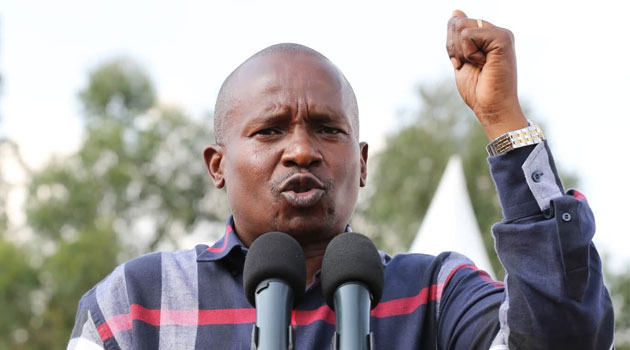
Kindiki roots for apolitical long-term strategy to fight graft » Capital News
NAIROBI, Kenya, Aug 25 – Deputy President Kithure Kindiki has described corruption as the greatest obstacle to Kenya’s development, warning that the vice has entrenched itself across every sphere of society.
Speaking against the backdrop of heightened debate on graft, Kindiki said corruption has “muddied the present and stolen the future,” stressing that it cuts across the three arms and two levels of government, as well as civil society, academia, and even religious institutions.
“Just like the war our nation has waged on poverty over the decades, an uncompromising, long-term and non-political strategy to defeat corruption, especially grand corruption, will elevate Kenya to the first world in a generation,” Kindiki stated.
His remarks come days after President William Ruto unveiled a Multi-Agency Team on War Against Corruption (MAT) through an Executive Order, in what he described as a “whole-of-government” approach to the fight against graft. The taskforce brings together the EACC, DCI, ODPP, KRA, CBK, and other state agencies.
However, the High Court has since suspended the team’s operations pending the hearing of a petition challenging its legality.
Court freeze
Justice Bahati Mwamuye issued interim orders after petitioners argued that the taskforce undermines independent constitutional offices already mandated to investigate and prosecute corruption.
The case will be mentioned virtually on September 9 ahead of a full hearing on December 4.
The suspension marked an early setback for President Ruto’s renewed anti-graft push.
The debate has also been inflamed by allegations of extortion in Parliament, with both Ruto and ODM leader Raila Odinga accusing MPs of turning committees into “extortion rackets.”
The President alleged that some legislators have received up to Sh10 million to influence legislation, including anti-money laundering laws.
“We are not going to shame them. We are going to arrest them — those giving, those receiving, and those facilitating,” Ruto warned.
Raila, for his part, drew a distinction between lobbying and outright extortion.
“Lobbying is okay. In the US, you have firms formed to lobby Congress. But lobbying is different from extortion,” he said, noting that the practice has damaged Parliament’s credibility and discouraged investors.
Legislators have, however, pushed back, demanding that the President substantiate his claims. Homa Bay Senator Moses Kajwang’ said Parliament’s integrity is at stake and urged Ruto to table evidence or direct investigative agencies to act.
Nairobi Senator Edwin Sifuna accused parliamentary leadership of failing to defend the institution, while Kitui Senator Enock Wambua challenged Speakers and committee chairs to protect Parliament’s dignity.
Kapseret MP Oscar Sudi also weighed in, likening corrupt MPs to “egg thieves” but warning that scrutiny must extend to “chicken thieves” — governors, parastatal chiefs, and senior government officials implicated in large-scale corruption.